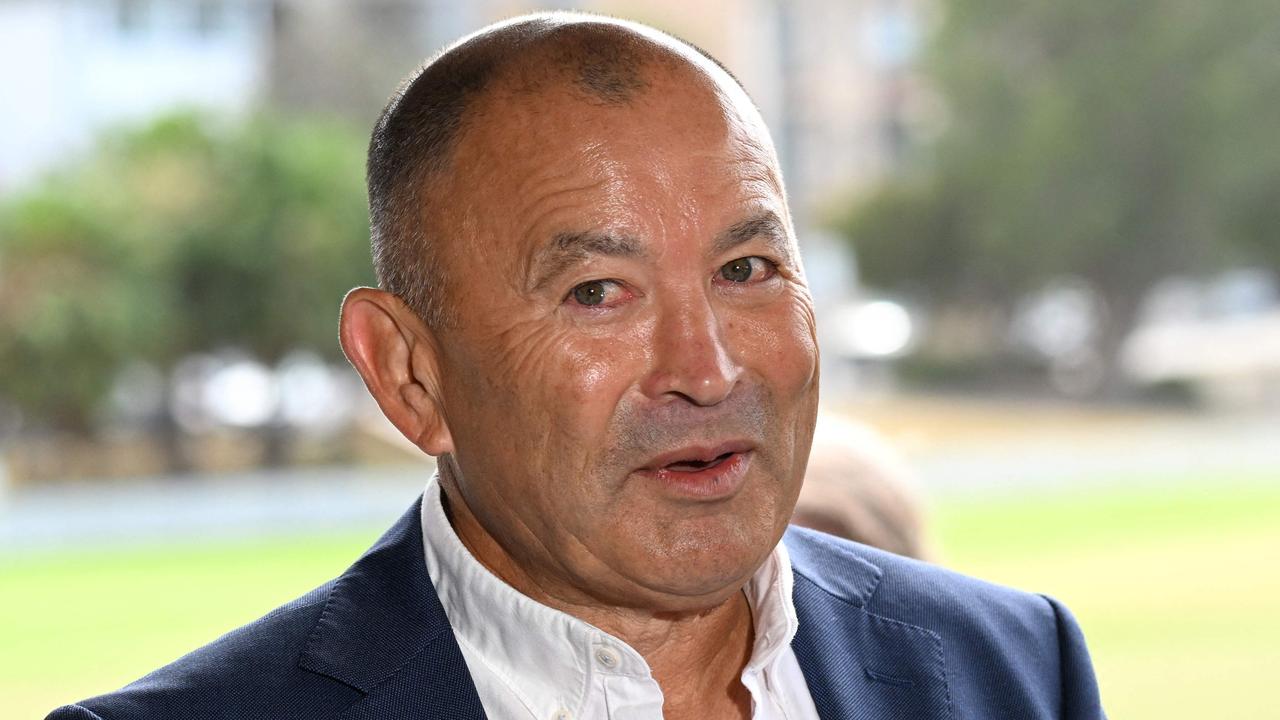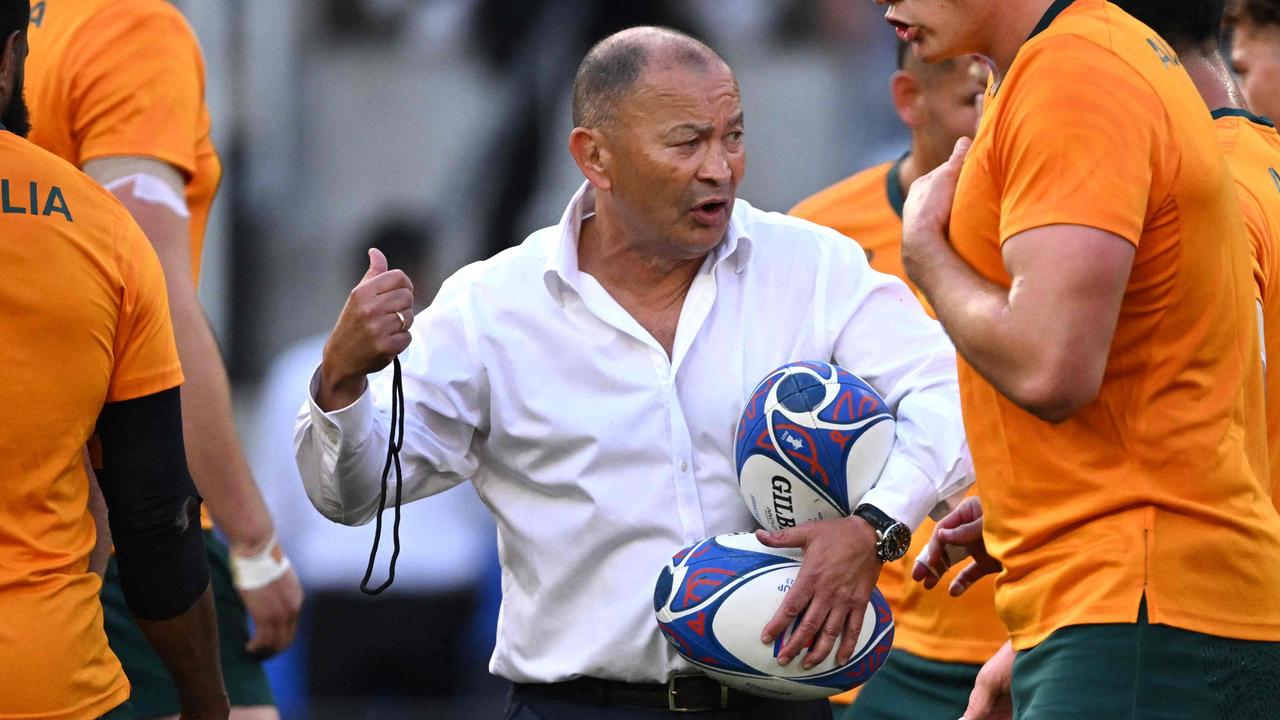Rugby World Cup 2023: Why powerful, heavier teams are pulling away from Australia and, to an extent, New Zealand
A concussion class action lawsuit is behind World Rugby’s inadvertent moves to slow the pace of the game, writes BEN ALEXANDER.
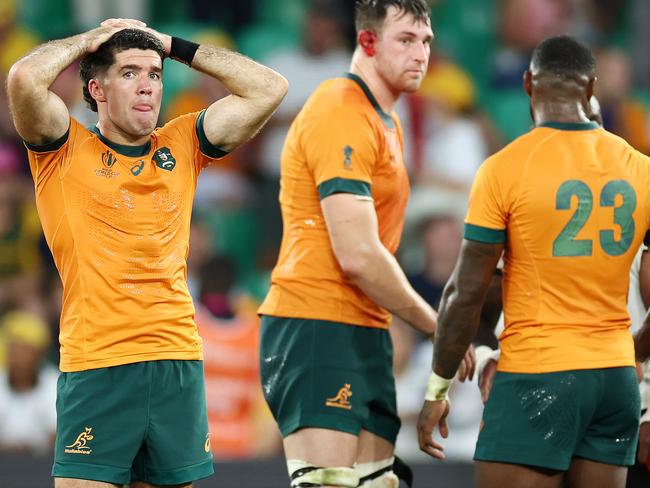
Rugby
Don't miss out on the headlines from Rugby. Followed categories will be added to My News.
It’s been popular to blame Eddie Jones, Hamish McLennan and other Rugby Australia types for allowing the Wallabies to fall so far behind other nations, but the real reason for our current form runs deeper than any individual.
Most nations have shifted to a slower, power-based game at least partly due to a concussion lawsuit before World Rugby. By allowing referees to stop play more – whether for foul play or double checking a decision via the video ref – the view is the game will be safer if referees rub out some collisions.
Those stoppages have slowed the game down, which suits bigger and more powerful teams because they get more chances to rest. Gone are the days of running teams off their feet with fitness and attacking rugby, which has historically been the hallmark of the southern hemisphere game.
Australia, and to an extent New Zealand, must adjust how they play if they’re ever going to reach their former heights, which is difficult given that the domestic competition, Super Rugby, is still positioning itself as an entertainment product where expansive rugby is rewarded.
Rest assured, World Rugby will not be changing its stance anytime soon.
Therefore, it’s up to the “running rugby” nations to adapt or risk falling even further behind.
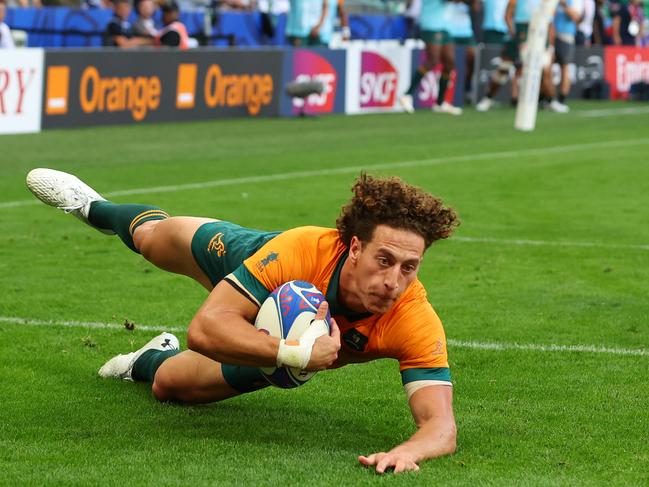
World Rugby lawsuit
It’s important to address the impact the ongoing lawsuit against World Rugby is having.
Three hundred past players – including former All Black Carl Hayman and World Cup-winning hooker Steve Thompson – filed a claim last year citing brain damage suffered while playing rugby.
I really feel for the impacted players and agree with their sentiment that: “We were told our bodies would be a mess when we retired, but not our minds”.
That said, class action suits are not new to collision sports. The NFL paid out an estimated $US1 billion after past players sued the game in 2015 and a similar bill could sink World Rugby. It’s only a matter of time before the AFL and NRL face a similar action, too.
In this climate, World Rugby has prioritised slowing the game down over promoting running rugby for the reasons mentioned above. But here’s the irony: they’re morphing rugby into a game suited to bigger, power-based players that will ultimately increase the intensity of collisions and, in my opinion, wreck players‘ bodies and brains more, all the while leaving running rugby fans annoyed at all the red cards and stoppages.
As for countries who have adapted the best, we’ll know more after the Cup, but I have been impressed with the precision and accuracy of Ireland, despite not being the biggest dog in the fight. That precision will be tested when they take on South Africa, perhaps the biggest dog of all, this weekend.
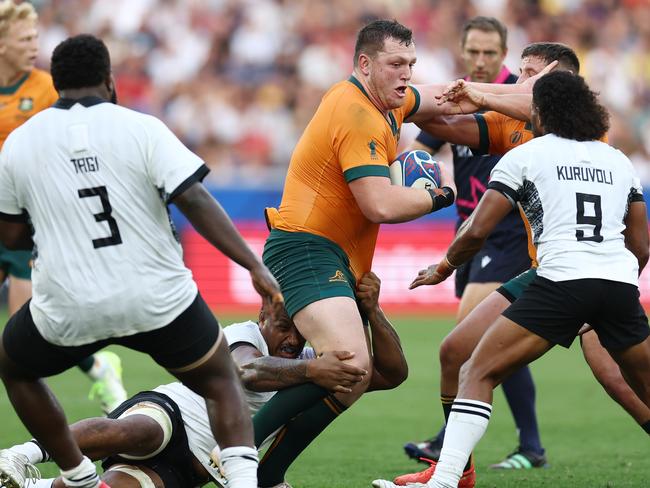
The great slow down
As we saw against Fiji, if you don’t win the collisions, you‘re on the back foot.
And if you‘re on the back foot, you’re little chance of winning.
We‘ve discussed how referees have slowed the game down and unfit players can do the same by faking injuries to catch their breath, which helps them win more collisions.
Refs have attempted to curb this tactic, but while the player welfare lawsuits loom over World Rugby, this will never be fully stomped out of the game. After all, refs aren’t doctors and need to allow time for any player laying down to be assessed. Players know this.
Again, this isn’t entirely new. I remember getting frustrated during the Lions series when a front-rower would go down injured before most scrums (or their hooker before a lineout) which allowed them to catch their breath and counter our superior fitness.
But the slow down is more evident than ever now. And until Australia adopts a style of play suited to the stop-start nature of Test rugby, we’ll never win another World Cup.
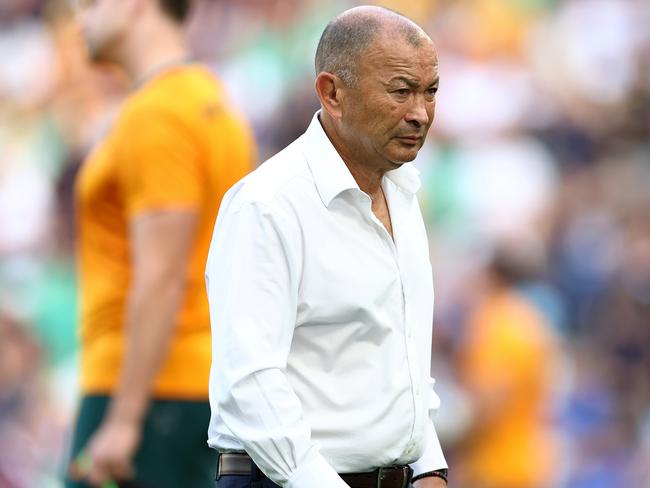
Super Rugby is not the solution
So, what is the answer?
For a start, we need to accept that Super Rugby isn‘t the breeding ground for Test matchwinning talent it once was.
The All Blacks are no longer invincible and Aussie rugby isn’t doing great.
And while the sample size is still small, I think South Africa benefits from playing in Europe, where the game is based around territory and power.
Super Rugby matches this season were the most entertaining they’ve been in years.
Which is great for fans, but is not preparing players to excel at Test level.
Fortunately, smarter people than me are working on solutions.
Here are two ideas that could work:
-Sending most of our forwards to play in Europe,
-Bulking players up by focusing more on nutrition and sleep, not simply by doing more weights.
The truth is that the Heineken Cup is a better competition for preparing players for international rugby and I think the more forwards we have playing in it, the better. Forwards there are massive (Will Skelton’s pack at European champions La Rochelle weighs over 1,000 kilograms) but a pack like that would get run off their feet in Super Rugby.
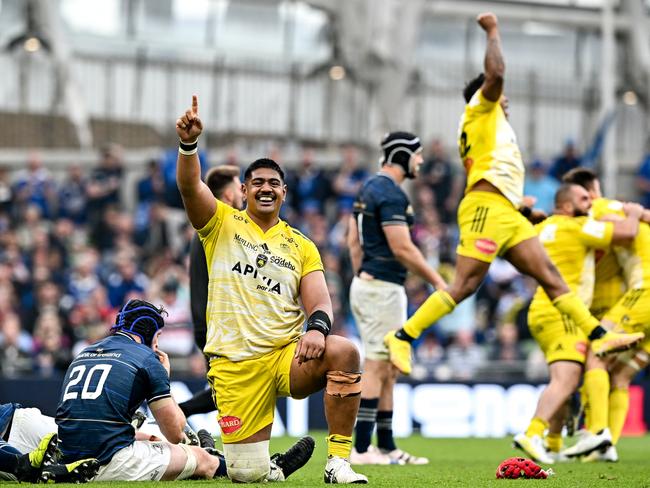
In my case, it was a career-long struggle between being told to lose weight and get fit for Super Rugby, then being told to bulk up for the Test season. It’s a frustrating cycle I know many current Australian players are in.
We need to accept size matters more than fitness and prepare accordingly.
As for bulking up athletes, we need to focus more on educating players about diet and sleep, more so than just dedicating more time for weights. A proper diet fuels muscle growth, while quality sleep is essential for recovery and maximising strength gains. I know for a fact that Aussie players already train harder than most countries.
I also think our strength and conditioning coaches have been grossly undersupported and administrators haven’t realised the importance of the work done away from the footy field.
In any case, while RA keeps trying to deliver Australian fans the running rugby they want, it will remain at odds with where the game is heading globally.
World Rugby is unlikely to change.
The Wallabies must.
More Coverage
Originally published as Rugby World Cup 2023: Why powerful, heavier teams are pulling away from Australia and, to an extent, New Zealand




